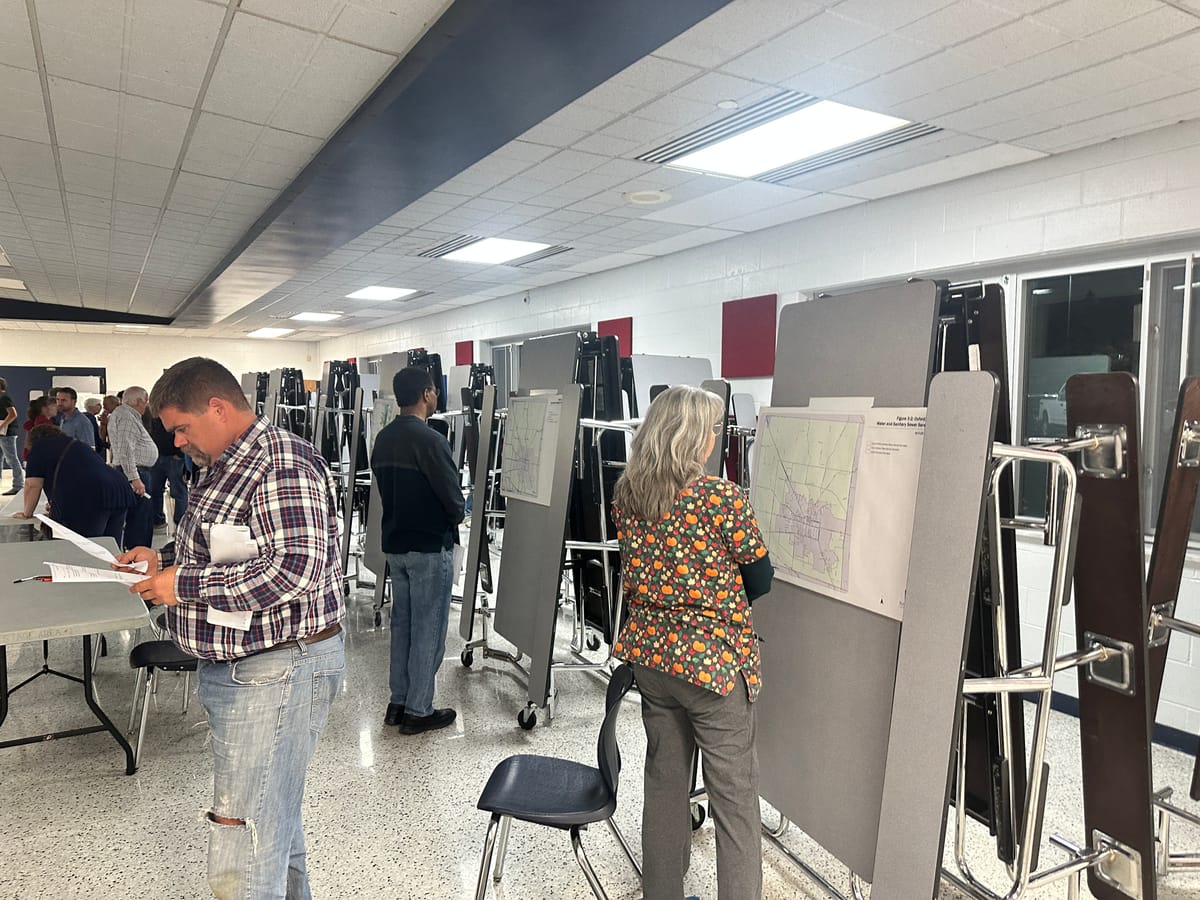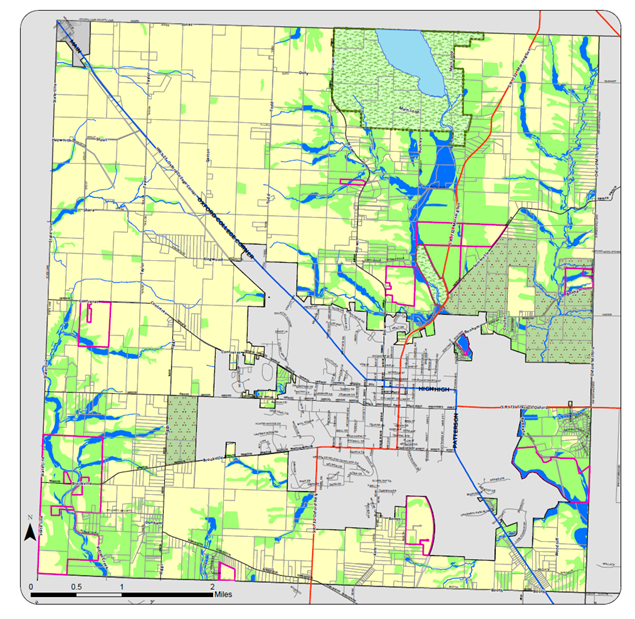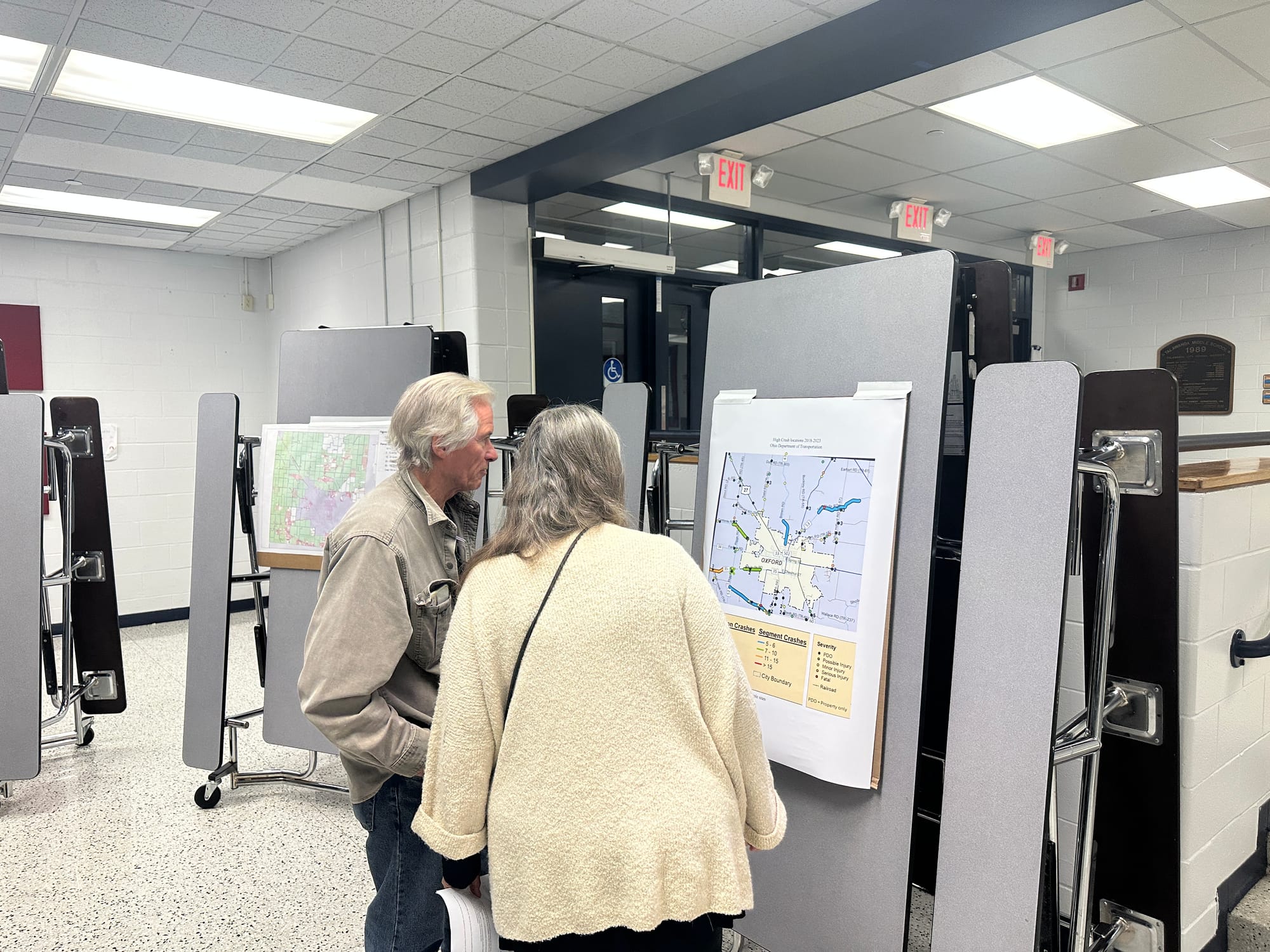Oxford Township seeks community input on land use plan at public meeting
Oxford Township has been working on an updated land use plan for the past year. On Oct. 24, the committee shared its first draft with the community.

Oxford Township presented its latest draft of its updated comprehensive land use plan to the public during an Oct. 24 meeting at Talawanda Middle School. Roughly 75 residents attended the meeting, surpassing expected turnout and prompting additional seating.
The updated land use plan is intended to guide future development in the unincorporated areas of Oxford Township. The township’s first comprehensive land use plan was drafted by a citizen committee appointed by the Oxford Township Trustees in 2008 and last updated in 2015. The Trustees again appointed a citizen committee to create this updated plan.
James Rubenstein, a professor emeritus of geography at Miami University, chairs the committee and presented the updated plan for public input.
“The goal of the plan is to preserve the rural character, predominantly rural and agricultural landscape in the unincorporated portion of Oxford Township,” Rubenstein said.

Oxford Township has lost about 800 acres of farmland from 2007 to 2024 while experiencing modest population growth. Currently, about 71% of the township's land is used for agriculture. The draft plan aims to save farmland, saying it’s “one of this community’s most important resources.”
The future land use map divides the unincorporated into four land-use categories: agriculture/conservation development areas, environmentally sensitive areas, unsuitable areas for development and public lands.
“We are taking the important, sensitive environmental features of Oxford Township, we are collecting them together, and that’s the basis for deciding our plan that would guide where if there were development, where it would be and where development is most critical not to have in there,” Rubenstein said.
The plan focuses on protecting and limiting development on six environmentally sensitive features: streams, aquifer pollution potential, steep slopes, wooded areas, endangered and threatened species and protected lands, and scenic viewsheds.
Under Butler County’s current development regulations, farms located in agriculture/conservation development and environmentally sensitive areas can be subdivided into 5-acre lots for development, risking the loss of farmland. Under conservation development principles, homes can be clustered on 10% of the land, preserving the rest as farmland under easement protection.
Although developers aren’t required to follow conservation development principles, the township plans to incentivize it by highlighting the economic benefits of doing so. For conservation development to ever become a requirement, the county would need to develop and adopt an ordinance.
If approved, the plan’s recommendations would give the township a legal basis to challenge development on lands they deem unsuitable — lands that have a high risk for pollution or those that would damage natural features.

Several residents expressed concerns during the meeting. One resident said the clusters of houses are similar to the housing development Owls Landing, where there is minimal space between houses.
“There has to be something in this plan that doesn’t say you can put up something where there’s just a cluster of houses that may have saved some farmland, which is very noble, but you got something that doesn’t strike the eye quite right when you go past it,” the resident said.
Others pointed out a balance between saving farmland and ensuring the property rights of citizens. One resident said that people may have their own sustainable features, such as a chicken or vegetable farm, and that preventing those uses would involve making assumptions about people’s lifestyles.
Residents who attended the meeting were also given forms to provide feedback on the draft plan.
The committee plans to meet again to implement feedback before the trustees vote on whether to adopt the plan in December or January.
Editor’s Note: James Rubenstein is president of the Board of Directors for the Oxford Free Press. Board members do not oversee content and are not permitted to review stories prior to publication.



